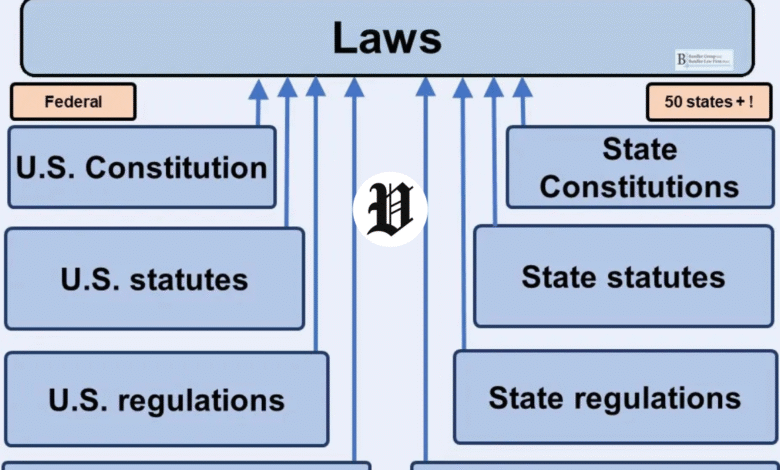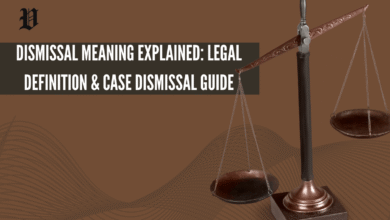Why the Important Laws in the United States Matter to You

Ever wonder what keeps the country ticking without chaos breaking loose? The important laws in the United States are the glue holding it all together. They protect your rights, keep things fair, and make sure society doesn’t spiral out of control. Whether you’re voting, working, or just grabbing coffee, these laws shape your everyday life.
They didn’t just pop up overnight. Over centuries, they’ve grown to fix injustices, meet new challenges, and reflect what Americans value. Let’s dive into the big ones, the basic rules, and why you should care about the laws that run this country.
The Bedrock: The Constitution and Its Amendments
Picture this: a rulebook so solid it’s lasted over 200 years. That’s the U.S. Constitution, signed in 1788. It maps out how the government works, splits power between branches, and stops any one part from going rogue. You lean on it every day for the balance that keeps democracy humming.
Then there’s the Bill of Rights, added in 1791 as the first 10 amendments. These are your personal shields—freedom to speak your mind, worship how you want, or keep your home private from random searches. These basic laws in the US are why you can live without looking over your shoulder.
Later amendments tackled massive wrongs. The 13th Amendment in 1865 ended slavery, freeing millions. The 14th gave everyone equal protection under the law, and the 15th opened voting to Black men in 1870. Women got their shot at the ballot with the 19th in 1920. These changes show how laws step up when society needs fixing.
| Amendment | Year | What It Does | Why It Matters |
| 1st | 1791 | Free speech, religion, press, assembly | Lets you live and speak freely |
| 13th | 1865 | Bans slavery | Freed millions from bondage |
| 14th | 1868 | Equal protection | Fuels civil rights fights |
| 19th | 1920 | Women’s voting rights | Gave half the population a voice |
These rank among the 5 most important laws in the United States . They’re behind every court case and right you use without thinking.
Civil Rights Laws That Changed the Game
Flash forward to the 1960s, when things got real. The Civil Rights Act of 1964 said no to discrimination based on race, color, religion, sex, or where you’re from. Your boss can’t skip you for a job or promotion because of who you are, and restaurants or stores can’t turn you away. This law broke down barriers in schools, jobs, and public places.
It came to life amid protests and struggle, signed by President Lyndon B. Johnson. It wasn’t the first try at fairness, but it hit hard. You see it now in diverse workplaces and neighborhoods where everyone gets a fair shake.
The Voting Rights Act of 1965 was another heavy hitter. It smashed tricks like literacy tests that kept Black folks and others from voting. States with shady histories had to clear voting changes with the feds. That meant more people voting and more voices in Congress from groups long ignored.
Parts of it have taken hits in court lately, but its core still stands. These laws make any list of the 10 most important laws in society for their push toward equality.
Social Welfare Laws That Have Your Back
Money and health matter too. The Social Security Act of 1935 was a lifeline during the Great Depression. It set up retirement checks, help for the unemployed, and support for struggling families. You pay into it with every paycheck, and it’s there when you retire or hit hard times.
It’s grown since then. In 1965, Medicare and Medicaid came along. Medicare covers doctor visits and hospital stays for anyone 65 or older. Medicaid helps states pay for care if you’re low on cash.
Social Security: Funds your retirement or steps in if you lose your job.
Medicare: Keeps healthcare affordable for seniors.
Medicaid: Helps families who can’t cover medical bills.
These are good laws for a country because they catch people before they fall. They shape how you plan for the future or handle a health scare.
Healthcare and Education: Leveling the Playing Field
Healthcare got a major upgrade with the Affordable Care Act in 2010. Insurers can’t ditch you for being sick already, and kids can stay on their parents’ plans until 26. Millions got covered through new options. You’re getting free checkups and screenings because of it.
Education laws made waves too. The National Defense Education Act of 1958 pumped money into math and science when the U.S. was racing to space. It helped kids like you or your parents get a shot at better schools.
The Elementary and Secondary Education Act of 1965 sent cash to schools in poor areas. It was about giving every kid a fair chance, no matter where they lived.
Building the Country: Infrastructure and Economy
Ever driven cross-country on a smooth highway? Thank the Federal-Aid Highway Act of 1956. It built the interstates, connecting towns and boosting businesses. You use those roads to get to work or visit family.
Workplace rules matter too. The Fair Labor Standards Act of 1938 set a minimum wage, guaranteed overtime, and stopped kids from dangerous jobs. It’s why you’re not stuck working 80 hours for pennies.
The Clean Air Act of 1970 cleaned up the skies. Less smog means you’re breathing easier and staying healthier.
People also see: INA 237 Unveiled: Your Guide to US Deportation Laws
Everyday Rules You Live By
Then there are the basic laws in the US that keep life orderly. Buckle your seatbelt, don’t text and drive, and pay your taxes. These cut down on crashes and keep the country running.
If you’re a citizen, you’ve got duties. Men have to sign up for Selective Service. Jury duty is your part in keeping trials fair. Knowing these rules of the country helps you stay out of trouble.
Immigration laws mean you need legal status to work or get benefits. Laws against domestic violence keep families safe.
Why You Should Care
The important laws in the United States aren’t static. They grow as new problems pop up, like protecting your data online or tackling climate change. You’ve got a say—vote, speak up, and push for laws that need to be made.
Think about history: The Civil Rights Act ended “whites only” signs, letting kids of all backgrounds learn together. Now, laws support leaders from every corner of society.
Don’t sit it out. Talk about laws that should exist in America, like better gun rules or protections for workers in gig jobs. Your ideas can shape the future.
People also see: Did George Washington Write the US Constitution?
FAQ
What are the 5 most important laws in the United States ?
The Constitution, Bill of Rights, Civil Rights Act of 1964, Voting Rights Act of 1965, and Social Security Act of 1935 top the list. They protect your core rights and safety nets.
What are some US laws?
Think civil rights, voting protections, the Affordable Care Act, labor rules, and environmental laws. They keep things fair and safe.
Laws that are important?
The 14th Amendment for equal protection and the Clean Air Act for health are huge. They touch your life every day.
10 most important laws in society?
The Constitution, Bill of Rights, 13th-15th Amendments, Civil Rights Act, Voting Rights Act, Social Security Act, Medicare/Medicaid, Affordable Care Act, Fair Labor Standards Act, and Federal-Aid Highway Act. They build fairness and opportunity.
Basic laws in US?
Seatbelts, no drunk driving, anti-discrimination rules, and taxes are examples. They keep you safe and responsible.
Important laws in the United States?
From the Constitution to the Affordable Care Act, these laws guard your freedoms and support your needs.
Good laws for a country?
Ones like the Bill of Rights for rights and Social Security for support. They create stability and fairness.
Laws that need to be made?
Ideas include tougher climate laws, data privacy rules, or affordable housing fixes. These tackle today’s challenges.
Laws in a country?
The U.S. has everything from federal to state laws, all working for order and justice.
Best laws?
The Civil Rights Act and Voting Rights Act shine for pushing equality and democracy forward.





2 Comments